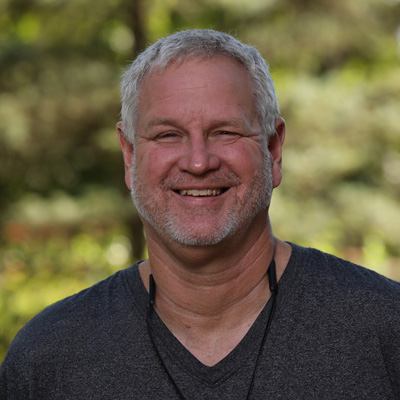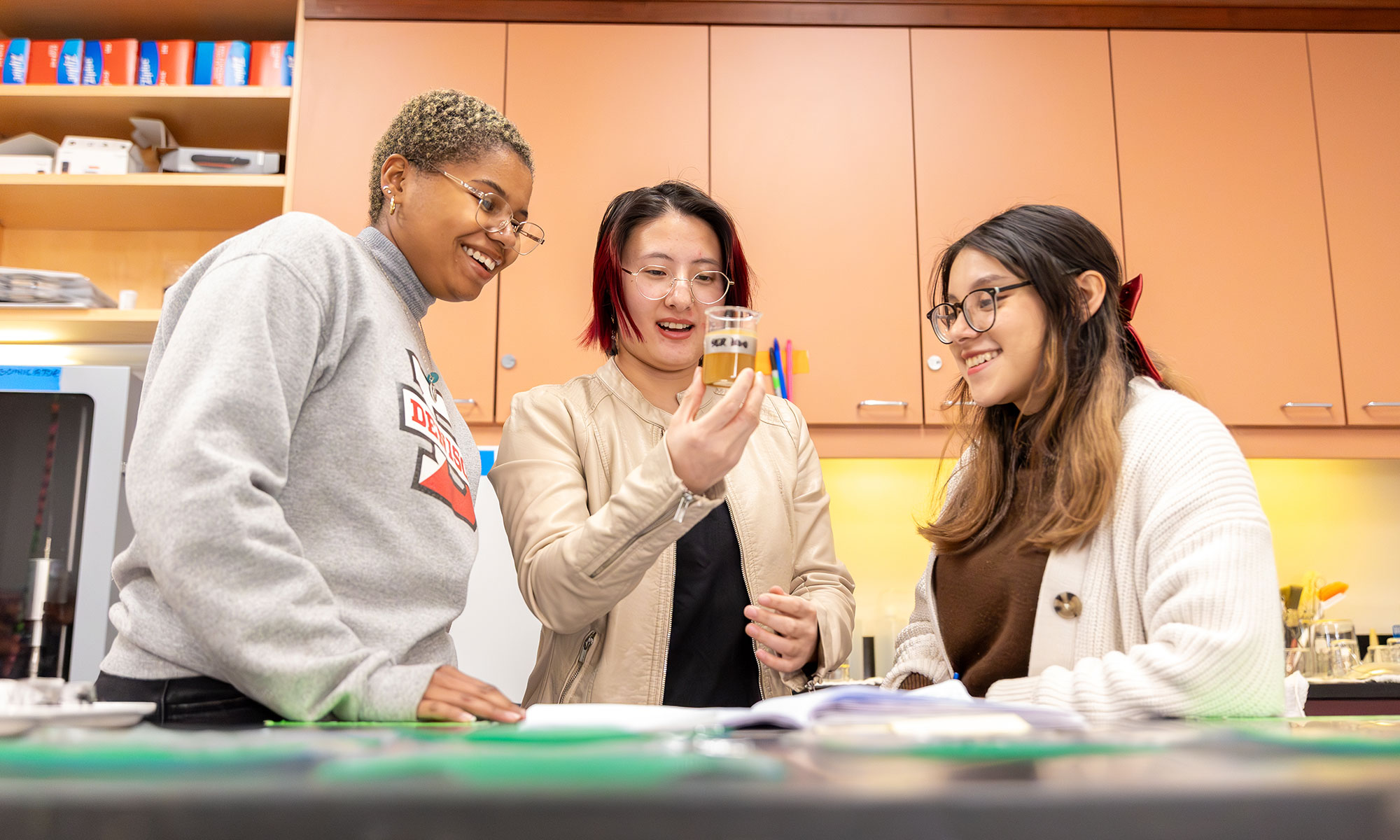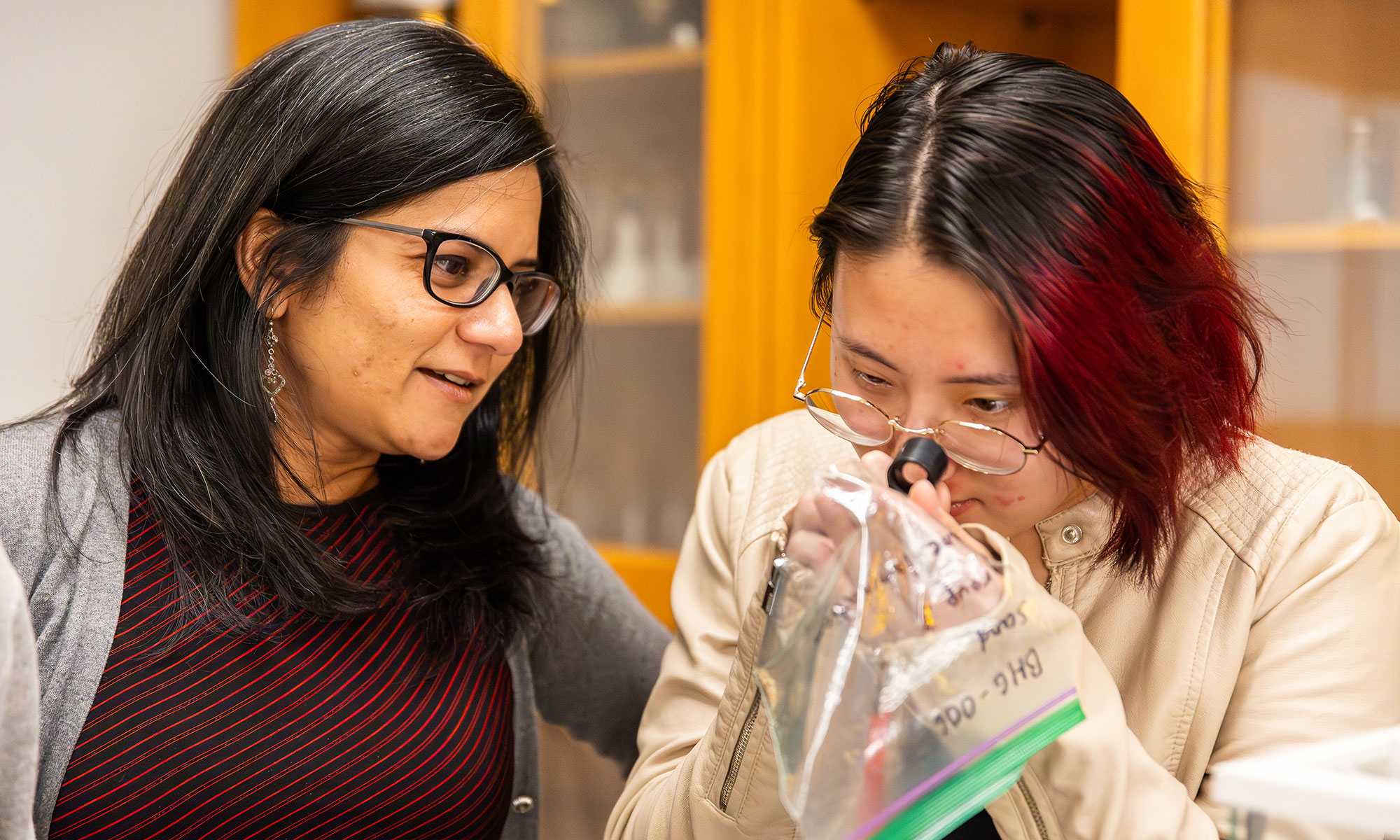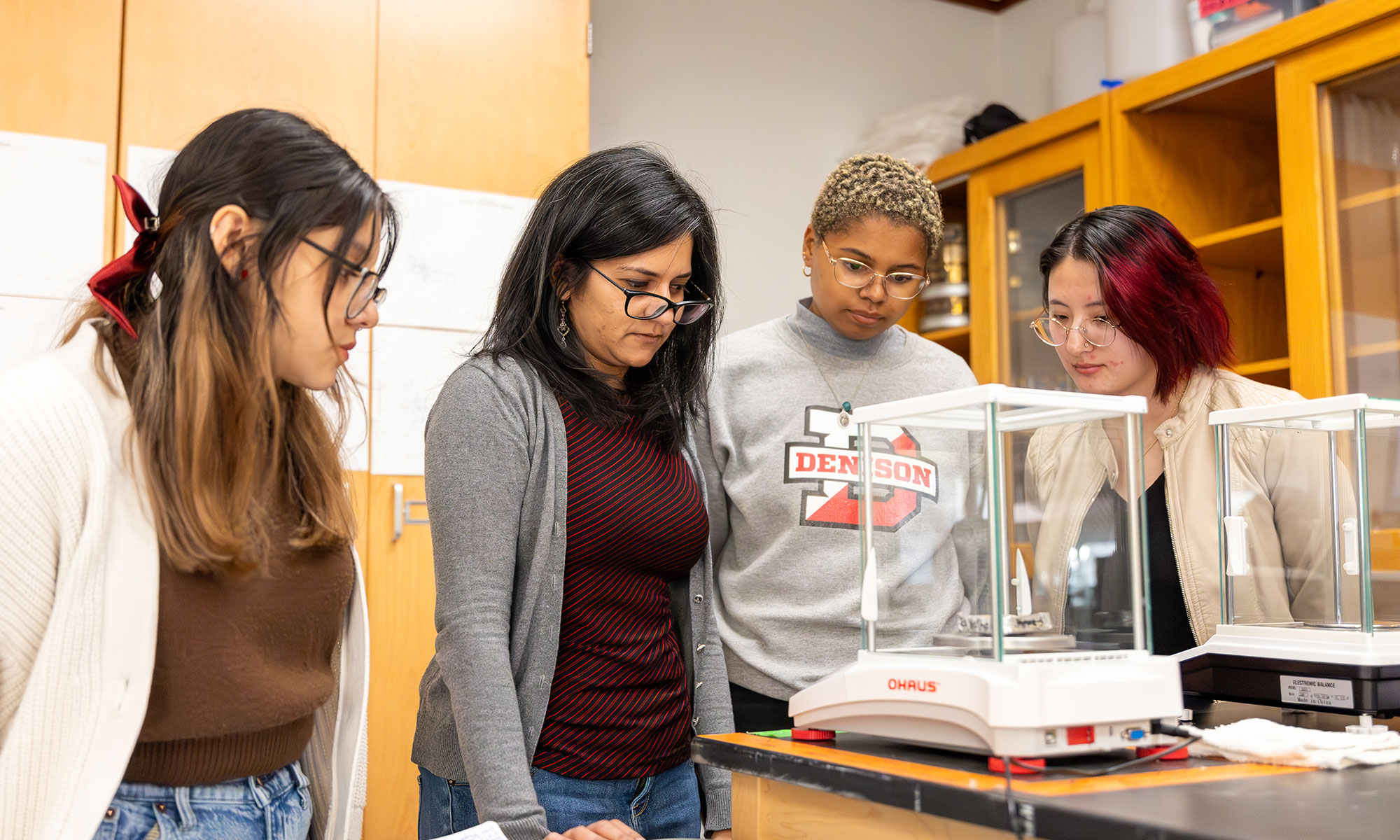A towering influence in the academic lives of students of color, Anjali Fernandes stands 5-foot-1 in her red Chuck Taylors.
The assistant professor in the earth and environmental sciences department knows what it means to fight for her place in a field historically dominated by bearded geologists in flannel shirts and hiking boots.
Fernandes developed a love for geosciences as a youth in her native India, where she was one of the few women in her college courses. At the University of Texas-Austin, she was surrounded by white male graduate students working toward their doctorates.
“Back in the day, it was rare to see petite brown women running around in the field, conducting research in remote locations,” said Fernandes, who’s co-authored nearly a dozen scholarly papers.
Fernandes tells all her students: If you’re passionate about the work, stick with it regardless of the environment. Her philosophy and tenacity resonated with Nay Woodley ’25, Linda Contreras Garcia ’25, and Thea Pederson ’25, three women of color serving as Fernandes’ research assistants.
Each student experienced moments of doubt during their early days in earth and environmental sciences. With the help of Fernandes, all have emerged as confident and fully engaged students.
“Anjali is the reason I stayed in the department,” said Contreras Garcia, an earth and environmental sciences minor.
“There were times I didn’t think I could do this,” said Woodley, an earth and environmental sciences major. “Anjali is a really strong person in my support system. She made me believe I belonged here.”
Nay Woodley ’25, Thea Pederson ’25, and Linda Contreras Garcia ’25 have served as research assistants for assistant professor Anjali Fernandes.
Wise rebrand
Fernandes does not recruit students to her field, but when she spots “exceptional talent” in the classroom, the professor works to develop it. That was the case with Woodley, Contreras Garcia, Pederson, and former student Andrea Scroggs ’21.
“She holds us accountable, but she cares very much,” said Scroggs, who works at the American Geosciences Institute. This non-profit represents the geoscience community in providing collaborative leadership and public information. “Anjali is a great role model for women in the field.”
Fernandes is recognized for her study of modern and ancient rivers responding to climate change, as well as research of coastal land loss and the rise of sea levels. She’s also the Principal Investigator on three National Science Foundation grants at Denison.
“I look up to many of my professors and admire how their research can help the communities they study like with Anjali and her work on the Mississippi River,” Woodley said. “Her research yields valuable information that city planners or engineers can utilize for flood prevention and/or infrastructure better equipped to bear climate change.”
Fernandes is heartened to see students like Woodley taking an interest in the field.
The professor believes geosciences has lacked diversity for several reasons. Some students, especially those from low-income urban areas, don’t have a connection to the outdoors because they didn’t grow up camping, hiking, or canoeing. Others can feel uncomfortable working in isolated regions where a lot of geological study takes place.
The professor said the university made a wise choice in 2021 when it rebranded the department from Geosciences to Earth and Environmental Sciences and tweaked the curriculum.
“I think we have attracted more students who feel a connection to the environment, especially in a time of climate change,” Fernandes said. “We’re also seeing a little more diversity.”
The evolution comes at a time when environmental scientists, even those with undergraduate degrees, are in high demand.
Scroggs said the professor is good at creating opportunities for students. Fernandes offered Woodley, Contreras Garcia, and Pederson the chance to become paid research assistants in her lab during the fall 2023 semester.
Assistant professor Anjali Fernandes helped Thea Pederson ’25 land an internship with the St. Anthony Falls Laboratory in Minnesota.
She also helped Pederson land a summer internship in her home state with the St. Anthony Falls Laboratory through her connections at the University of Minnesota. When it ended, the professor used university funding to help Pederson join fellow Denison students on a research trip in the High Plains of Nebraska, Wyoming, and Colorado.
“Anjali not only got me the internship, but she called and checked in to see how I was doing,” Pederson said. “She takes a real interest in her students’ lives.”
‘Women in stones’
Woodley laughs describing the reaction of friends back home in Detroit when they learn she does field research, works in a lab, and analyzes sediment samples.
“They don’t really understand what we’re doing,” she said. “They’re like, ‘Wow, that’s cool, women in stones.’”
Woodley is the only member among her Detroit circle of friends to spend much time in nature, taking advantage of a nonprofit organization’s offer to send kids on summer camping trips in Traverse City, Michigan.
“Nobody around me had that same experience,” Woodley recalled. “They looked at me like I was crazy — as if I wanted to go out and climb a tree. I developed a love of nature by going to those camps. Coming to Denison, I now have friends who like to be outside and go on walks with me.”
Fernandes said it’s important for women of color to “find your community.” She belongs to the Earth Science Women’s Network. Woodley, Contreras Garcia, and Pederson have their professor and each other.
Assistant professor Anjali Fernandes says her department has seen an uptick in student diversity since it was rebranded to earth and environmental sciences.
The three students have seen the wisdom of their professor’s advice to stay the course. As juniors, they feel part of a collaborative effort and sometimes find themselves in leadership roles.
Woodley plans to attend graduate school with an aim of becoming a scientific researcher who combats climate change. Pederson is considering a career with the U.S. Geological Survey or a national or state park service. Contreras Garcia is interested in environmental advocacy and consulting.
Contreras Garcia recalls the moment she felt part of the geoscientific community.
“I was back home in Houston, and we were talking about what I was studying,” she said. “They were saying, ‘You study rocks?’ I was like, ‘No, it’s more than just rocks.”









